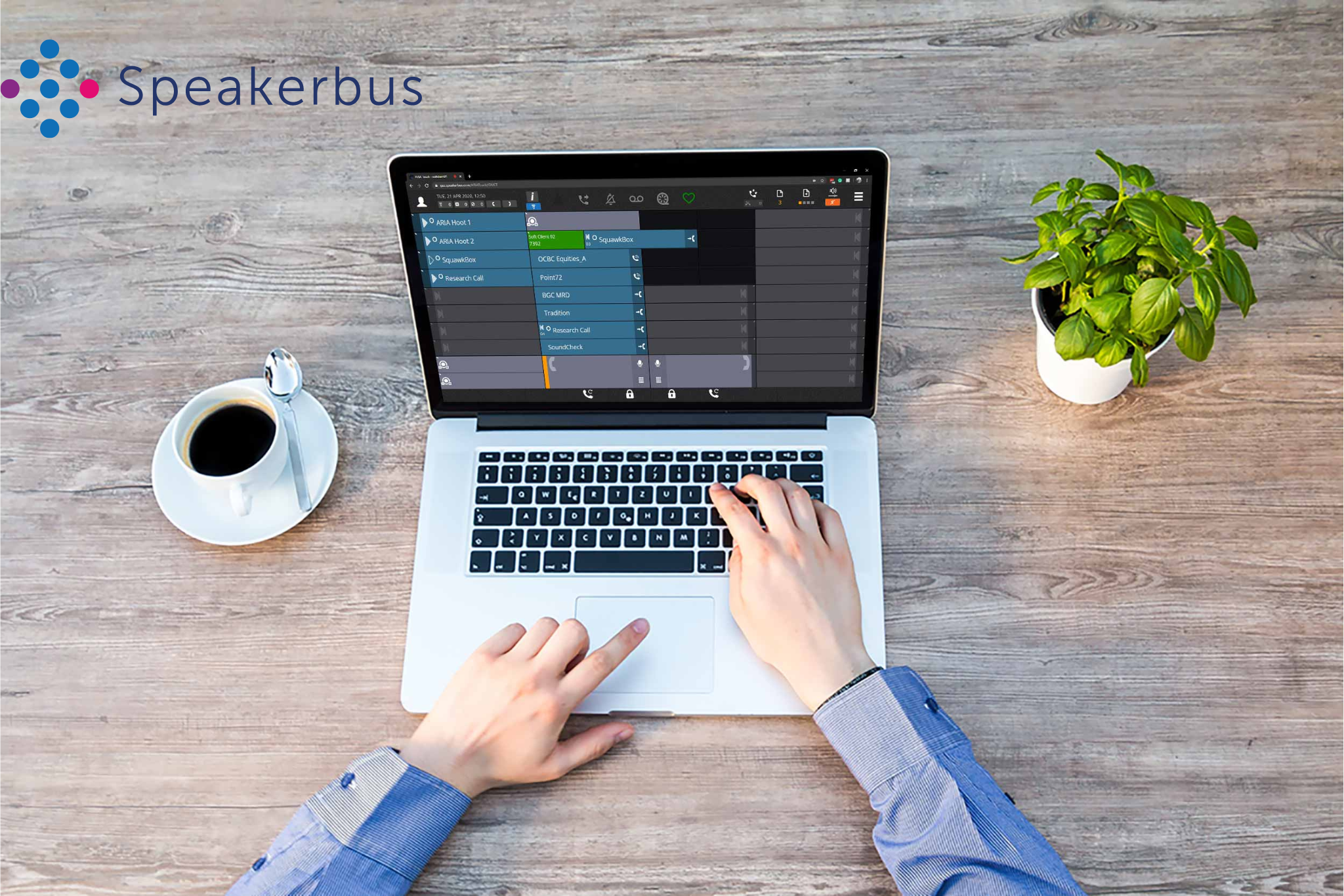
In recent years, cloud computing, instant messaging and video conferencing have helped firms maintain business continuity amidst the move to remote and hybrid working models. So, effective trader voice technology is now crucial for traders to collaborate and communicate from anywhere, anytime, whilst remaining compliant.
In this article, we explore the key things to consider and questions to ask before introducing new trader voice technology within your firm.
Why do you need a trader voice strategy?
A recent report by the London School of Economics found that 95% of respondents saw the future of work in financial services as a hybrid model.
So, with trading teams scattered between home and office becoming ever more popular, implementing an effective trader voice strategy has never been more important.
Voice is crucial for discussing and coordinating complex and high-value trades in real-time, and for closing transactions swiftly. It’s also vital for getting market data out to traders with zero delays, allowing firms to make informed trades faster than the competition.
While instant chat can keep teams broadly connected and aligned, there are no guarantees messages are being read and understood. Voice gives you (and your stakeholders) confidence that key information is delivered, understood and acted upon there and then.
Is it time for your firm to implement new trader voice technology?
If your firm’s current communication tech stack was pieced together during the pandemic, the time could be right to reassess your processes, streamline tools and consolidate costs.
However, selecting the right trader voice solution for your team requires high-value decision-making and mission-critical planning by senior IT managers.
To safeguard existing productivity and collaboration, the technology must slot in as part of your wider trading communications environment, integrating securely with your other cloud-based solutions and offering precise control, instant connections and crystal-clear audio.
Benefits to expect from new trader voice technology
Your trade voice technology must also deliver the following benefits:
-
Mobility and flexibility - Voice trading activity should be centralised on a single platform, which can be used in the office or at home, enabling teams to perform optimally (and easily) wherever they’re working.
-
Continuity of user experience - Enabling the same UX and UI across any new devices and integrating familiar tools that can minimise user pain points and encourage widespread adoption.
-
Seamless trading communications - Effective trading has always relied on rapid communication and quick decision-making. Your chosen tools must enable your trading team to seamlessly communicate to maintain this in a hybrid environment.
-
Collaboration and alignment - The in-person benefits of in-office working (mentoring and client relationships, to name but two) need to be maintained remotely. Trading teams should still be able to collaborate efficiently and align properly without sitting side by side in the office.
-
Voice quality and capture accuracy - Firms need complete visibility and control of their communications data by capturing, monitoring, analysing, archiving and reporting on all communications, across channels, ideally in one pane.
-
Robust trader voice compliance - Firms need to implement tools that can provide end-to-end encryption and record and store trader voice communications in line with industry compliance requirements.
3 questions to ask before implementing new trader voice technology
While your focus should be on the long-term competitive advantages of trader voice technology, you must also weigh up the costs and operational considerations, including productivity, user experience, flexibility and compliance.
With that in mind, ask yourself the following questions before implementing new trader voice solutions:
1. Do you want to enhance or replace your tech stack?
As with any new technology, you have a choice. Evolution or revolution. Do you want to build on what you’ve built already? Or take things in a new direction?
With our trader voice solutions, you can go down either route. They can be deployed quickly to replace legacy equipment — or become an integral part of your existing communication portfolio.
2. Where are you implementing it?
Do you need the reliability of a physical location or the flexibility of the cloud? Both have benefits (an on-premise solution offers greater security and control, but the cloud is often more cost-effective and easier to scale).
Again, with Speakerbus trader voice technology, you can choose either option. Our solutions are powered by a scalable, distributed software architecture that can reside in the cloud or on your premises.
Read more: Why Voice Trading Communications is Moving to the Cloud
3. Do you need to integrate existing applications?
Depending on how established your existing trader communication environment is, there can invariably be some overlap when rolling out new technologies. You may already have a preferred vendor in place, or it might be cost-prohibitive to remove them right away.
Using our Speakerbus API and specialised hardware, we can integrate with existing applications and services to extend capabilities, gain efficiencies and enhance workflows.
Introducing next-gen trader voice technology from Speakerbus
Smaller firms may be tempted to rely on mass-market communication tools, such as Teams or Zoom, but these just don’t allow you the capabilities of dedicated trader voice technology and specialised call types like intercom, private wire and hoot.
A more strategic and progressive approach is to partner with a trader voice technology provider. One that knows how best to address the multiple challenges of remote trader communications and implement a streamlined tech stack with minimal disruptions.
Here is a brief overview of Speakerbus’ trader voice solutions:
-
Our innovative trade communications and collaboration solution QORUS helps firms meet the needs of the hybrid era and ensures seamless processes in and out of the office.
-
CADENCE is our cloud communication platform, ensuring access anywhere, anytime, under any circumstances.
-
And SONANCE brings everything together in one place, helping you simplify and automate critical communications data management processes from our certified compliance partners.
Summary
To recap, cloud-based trader voice technology can streamline communication, enhance collaboration and ensure complex trades are made quickly and accurately.
Working with an expert solutions provider like Speakerbus, you can give your trading teams the tools they need to work from anywhere, without compromising compliance.
Ready to explore new trader voice technology? Take a deeper look at how Speakerbus can help and what our solutions can do for you.



